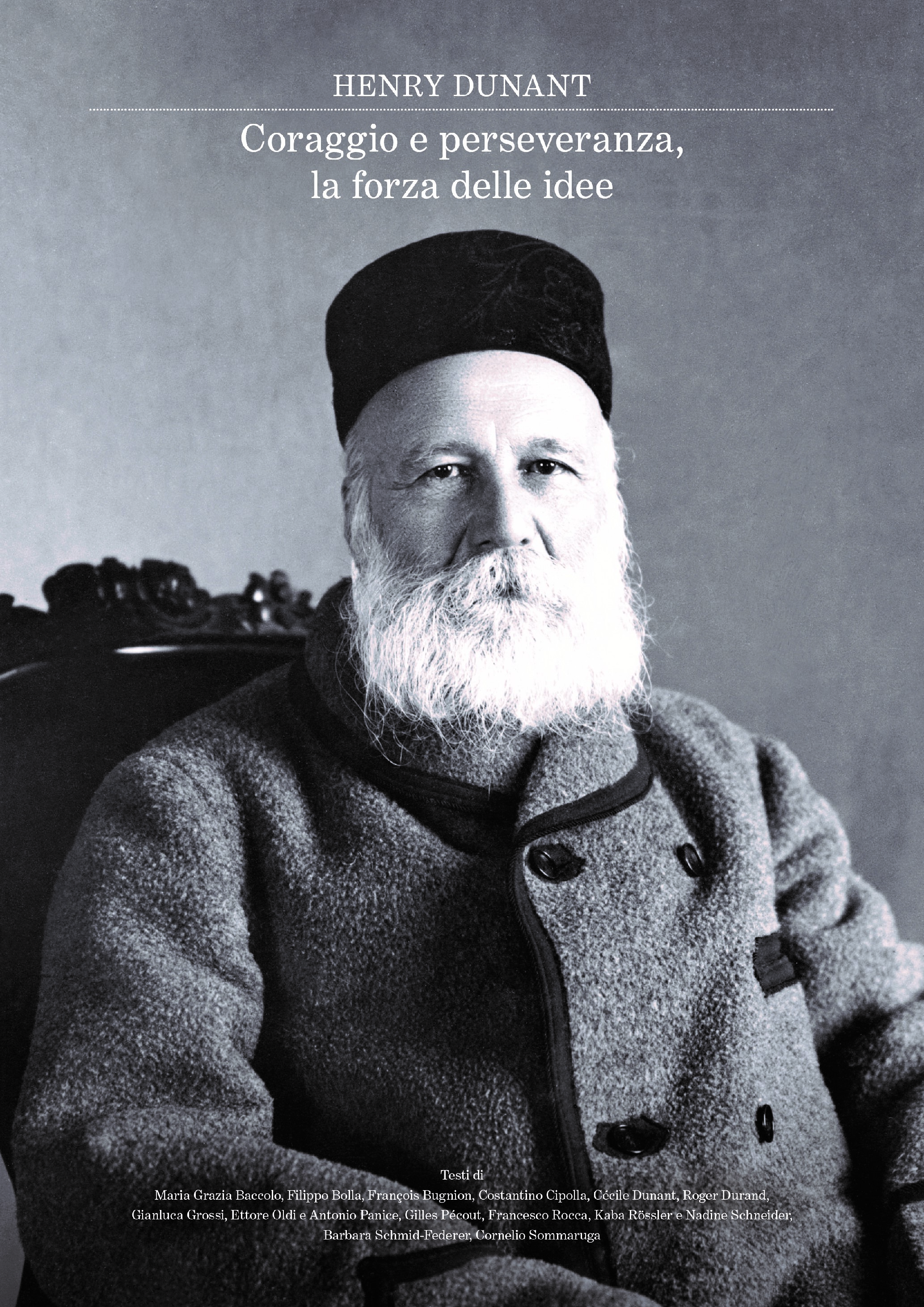HENRY DUNANT - Courage and perseverance, the power of ideas.


This year’s financial statement – covering the 2022 financial year – contains a substantial monograph on Jean-Henry Dunant.
Henry Dunant grew up in a devout Calvinist family and had a strong sense of social solidarity instilled in him by his parents. His father helped orphans, while his mother took him with her to visit the poor and the sick. Henry learnt about loving one’s neighbour from a young age, supported by his deep faith.
It was this faith that led him to found the Geneva chapter of the Union chrétienne de jeunes gens [Young Men’s Christian Association] when he had barely reached adulthood. Alongside his spiritual dedication, Henry served an apprenticeship with bankers Lullin and Sautter de Beauregard, who were very active in the colonisation of Algeria. After finding land not far from Sétif in Algeria, in 1855 he founded his own colonial enterprise, which proved to be a failure.
After failing to obtain the land concession for another 200 hectares, in 1859 Dunant decided to appeal directly to Napoleon III, who was in Italy with his army fighting the Second War of Independence, with Piedmont and France on one side and the Austrian Empire on the other. Dunant was determined and reached the battlegrounds. Here he witnessed the dramatic consequences of the battle fought at Solferino on 24 June 1859. Shocked by the fact that only the wounded of the victorious army were being treated, he embraced the slogan “Tutti fratelli” (All are brothers) coined by the women of Castiglione delle Stiviere, who, like him, were helping the wounded without regard to their side in the conflict. The experience affected him, and once he had returned home, he decided to write Un Souvenir de Solférino (A Memory of Solferino), which was published in 1862 and enjoyed immediate success throughout Europe.
In 1863, with the dramatic battle scenes still alive in his memory, the Committee of Five was born, formed of Dunant, General Guillaume-Henri Dufour, doctors Theodore Maunoir and Louis Appia, and lawyer Gustave Moynier, which later became the International Committee of the Red Cross (ICRC). In 1864, the first Geneva Convention was established, which set out provisions for the humanitarian treatment of victims and adopted the emblem of a red cross on a white background.
Meanwhile, Dunant’s life was marked by a series of failures, including his declaration of bankruptcy in 1867, which led him to live as a beggar as he was shunned by society and also by the Committee. In 1875, he decided to leave Geneva and take refuge in Heiden, a small town in the Canton of Appenzell.
In 1895, German journalist Georg Baumberger wrote an article that brought Dunant back into the spotlight of public opinion, to the point that, in 1901, he was awarded the first Nobel Peace Prize. He died in Heiden on 30 October 1910 and was buried in Zurich with no ceremony.